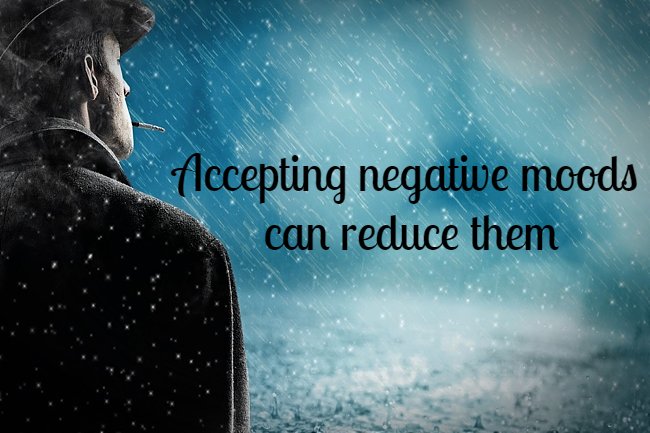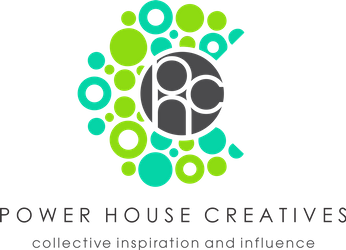To think positive is a piece of advice you must have come across pretty often. If nowhere else, you could have seen it written in most of my posts. I strongly emphasize the importance of feeling good and that Philosophy of happiness that I am explaining and writing about, has it at its core. Happiness is not about a destination and final answers, it is about the journey and on that journey life will throw at you everything that it can and not all of it will be to your liking. Is it possible then to always be happy? No, it is not and that is not even the point. The point is to strive to be happy as often as you can and in order to do that, you need to accept that you are sometimes not.
 CC0 image, Pixabay, author:pixel2013, adapted
CC0 image, Pixabay, author:pixel2013, adapted
There are many philosophies out there that will speak about living in the moment and taking a positive approach. There is nothing wrong with them but you need to be careful because they can do more damage than good if you blindly follow them without a deeper understanding of how your psyche works. Yes, you should be happy but truly happy and not fake happy. Putting on a mask with a smiley face over your mood does not work. It only barries your problems until they eventually (and they always do) come out to bite you in the ...


I will talk about how recognizing what state you are in is important but there is no way around it, you have to go straight through self-compassion to get there. The reason behind this detour is your ability to remain unjudgemental when you recognize a certain state and use your objectivity when dealing with cause and effect relations.
Relate to yourself with kindness
Self-compassion is a construct drawn from Buddhist psychology and it relates to self-love and treating yourself with kindness. The first person who operationally defined the term was psychologist Kristin Neff who described it as being gentle, supportive, and understanding to yourself. I can not emphasize enough how this is important for your psychological health. There is a huge difference between making a bad decision and considering yourself a bad person because of some bad decision. That is where self-compassion comes in because you are able to show acceptance for your "mistakes" and find ways to correct them instead of allowing them to belittle your worth as a human being. Your psychological well-being is dependent on your level of self-compassion and so are your emotional intelligence, happiness, overall life satisfaction, anxiety, depression, and healthy relationships. There is a great paper about it written at Duke University that you can read here:
Self-Compassion: Conceptualizations, Correlates, & Interventions by Laura K. Barnard and John F. Curry


The problem with having or not having a healthy personality starts with defining what personality is. There is a Five-Factor Model, the approach that has so far received the most rigorous empirical treatment, a personality consists of a set of 30 facets that form five basic dimensions. Your behaviors reflect your personality. You can remember what those 5 factors are with a mnemonic "ocean":
Openness to experience
Conscientiousness
Extraversion
Agreeableness
Neuroticism
From Freud to modern theories
From good old mother-blaming Sigmund to psychologists today, everyone had some sort of idea what a healthy personality should be defined as. Freud said it was “love and work,” Maslow believed psychological health is synonymous with "self-actualization", Rogers said that it means people are "fully functioning", and Frankl proposed that psychologically healthy people are able to find meaning in their lives. Psychologist Wiebke Bleidorn, from the University of California, gathered up a team from USA and Germany to study the matter and find the final answer. He proposed the existence of a "specific personality prototype" that has certain characteristics such as the ability to love, to hold an optimistic view of the world, to be rational, have self-awareness, be able to take responsibility, be open to creative ideas, and to be capable of doing good. This is where that "ocean" comes in. The healthy personality is high in Openness to Experience, Conscientiousness, Extraversion, and Agreeableness while it is low in Neuroticism. The research paper is available here:
The healthy personality from a basic trait perspective by Bleidorn, Wiebke Hopwood, Christopher J. Ackerman, Robert A. Witt, Edward A. Kandler, Christian Riemann, Rainer Samuel, Douglas B. Donnellan, M. Brent
Keep in mind that this does not mean (nor will it ever) that you are 100% of the time like that. A healthy personality means you are most of the times having those characteristics. There is not a psychologist in the world who will tell you that it is possible to always be in a positive mood. Striving to be happy and recognizing when you are not is a good thing. There are those who are happy more often than others but all of us get sad, angry or disappointed once in a while. It is what makes us human to recognize what we do not like and what we do like.


To occasionally feel negative is normal and it can even be cleansing but if your negative moods last for long and turn into depression then you have a problem. Negative mood is a consequence of chronic unresolved stress and it can affect your health, productivity, and relationships. The root of all this is irrational thinking about people and things you experience, overgeneralizing, and focusing on your feelings instead of the cause of the problem or its solution.
Rational and emotional you,
need to be in balance
Ignoring your emotions never works and is not productive in a long run but neither is relying exclusively on them alone. A strong balance between your rational mind and feelings is the best approach. You need to recognize and acknowledge your every emotion, feel and experience it just as you need to figure out where did it came from, what caused it, and if you want to keep it or change it and in what way. You should also keep in mind that some people perform better under pressure or when in a negative mood and their entire way of thinking changes. The results from one experiment in 2010, showed how people in positive moods prefer satisficing strategies leading to a higher number of proposed solutions while people in a negative mood choose optimizing strategies and are more concerned with the quality of their ideas. You can read about it here:
The Effects of Positive and Negative Mood on Divergent-Thinking Performance by Suzanne K. Vosburg
3 ways to optimize your mood
Up until now, there have been series of debates on whether you need a professional to help you or you can help yourself regarding some problems. I will always say that you need both and will remain a strong believer that just as you have a professional for your physical health, you should have one for your psychological too. That does not mean that you have to run to your doctor for everything. There are bandages, herbal remedies, and pain pills for your body just as there are techniques that will help your psyche.
Harvard Medical School researchers have identified three self-administered positive psychology writing exercises that help people in recovery from substance use disorders but can also be used by anyone else who wishes to help themselves turn that frown upside down. This was the first large study designed to find if self-administered, text-entry-based positive psychology writing exercises can significantly improve in-the-moment happiness. Participants completed text-entry-based written exercises and rated their degree of happiness before and after the particular writing exercise.
There were 3 techniques of positive memory specificity that were used: Reliving Happy Moments where the participants needed to select a photo of a happy memory they had and shortly describe it, Savoring where they had to describe two specific positive experiences from the past day and the Rose, Thorn, Bud technique where they needed to describe a bright spot (rose) and a challenge or an obstacle (thorn) from the preceding day, and then forecast something positive that would ‘blossom’ the following day (bud). Exercises are only 4 minutes long, easily put in the normal daily routine and significantly increase in-the-moment happiness so next time you feel that blues, give them a try. Until then, you can read the study here:
Do self-administered positive psychology exercises work in persons in recovery from problematic substance use? An online randomized survey by Bettina B. Hoeppner, Melissa R. Schick, Hannah Carlon, Susanne S. Hoeppner


A psychologist Brett Ford, at the University of Toronto, researched if the amount that people "accept" their negative emotions is associated with their better mental health and reduced negative moods over time. There were 3 studies and more than 1000 people participated.
Experiencing negative emotions
in a non-judgemental way
In their first study, they found that accepting mental experiences was related to less anxiety and depression just as it was to more life satisfaction. The effect persisted even when the other variables such as cognitive re-appraisal were accounted for. In the second study, participants were put in a laboratory and exposed to a variety of stressors. Those with a higher level of general acceptance experienced lower levels of negative mood. The third study lasted over a six month period and after assessing participants found how high levels of acceptance were associated with better mental health because positive mental health was explained by reduced levels of negative emotions six months later. You can read those studies here:
The Psychological Health Benefits of Accepting Negative Emotions and Thoughts: Laboratory, Diary, and Longitudinal Evidence by Brett Q. Ford, Phoebe Lam, Oliver P. John, Iris B. Mauss
When you take everything that you have read in this post, into account, what is your conclusion? Did you get the point that I was trying to make? In order to be happy, you need to accept that you are sometimes not and there is nothing wrong with that. Do not be angry at your self because you are angry and do not feel sad because you are sad. That is a vicious circle that is hard to break free from. Use your ability of self-compassion and accept the state you are in. Without accepting it, there is no moving forward. How would you know where to go if you do not know where you are? When you accept it and allow yourself to feel it without judgment, then you can work on ways to getting better. If you want to reduce your negative moods, accept them. Do not accept them as a permanent state but work on them and know that it is sometimes ok not to be ok. What matters is that you do not stay that way so give yourself some love and kindness whenever you feel blue.
If you are interested in learning more on this subject, check out these REFERENCES:

Until next time,
KEEP YOUR SMILE ON!



Image sources AND LICENCES in order of appearance:
- all images used in this post are free for commercial use, they are royalty free with the links to original images provided under them
- titles are made with the CC0 image from Pixabay that can be found here
- line divider that I use is from FREE CLIPART LIBRARY, and is here
- my bitmoji avatar was created on https://www.bitmoji.com/, visit the site to create yourown
PROUD MEMBER OF:





 CC0 image, Pixabay, author:pixel2013, adapted
CC0 image, Pixabay, author:pixel2013, adapted





















I get exactly what you mean💖 Absoulutely on point SiStar💯
✨🙏✨
Posted using Partiko Android
Thank you honey, much love!!! 💚💚💚
Well, isn't this something I needed to read? lol I think one of the biggest mistakes I made is thinking about what other people would think if I show them I am sad, or have problems. Like it is NOT OK to be like that sometimes.
Like that you are only overpressuring yourself even more instead of just like you accepting your sadness at the moment so you can let it pass. And, it is OK to be sometimes like that in life. It is just a phase you are going through in life. It is not how you want to feel but hiding it, and faking to be happy is not something anyone should do.
So keeping the sadness inside will lead you nowhere. No matter how you feel you need to let it out. So if you need to cry? Cry your eyes out. If you need to yell? Yell your lungs out. If you need to break some stuff? Well, break some stuff, but find the cheap things you don't need so you don't get sad for breaking them later? lol jk
Anyways, those are some of my thoughts on it. Amazing article, my friend, and it is just what I needed to read.
P.S. - You're a formatting rock-star. I need some lessons from you. lol
Thanks for sharing, my friend. Have a great day. :)
I am glad you have enjoyed the read. Thank you for your kind feedback and lovely words of encouragement. 💚
You are more than welcome my amazing friend. :)
This is really fascinating. If you write yourself off, you're just going to go into a downward spiral, which will help no one. I used to go to Buddhist meditation regularly, and their philosophy was that if you are in a negative mood, it's just a negative mind passing through. It shouldn't be personified as "you".
I'm not so sure about the "OCEAN" model. It seems to me that we should value introverts and introversion more. Introversion can often lead to creativity and invention. It's often the ones who sit silently in a corner who come up with the best ideas. Extraversion can be great too - I don't see one as better than the other.
When I followed your link to read more about it, I felt that those five traits are not so much indicative of a healthy personality as indicative of an obedient personality who will work hard in their job without criticising authority too much! But maybe that's just my disagreeable neuroticism coming out :)
Yeah, I think that is neuroticism coming out :) or I have not explained it well enough. I think it is that one :) Let me try again.
With "ocean" you need to be open for new ideas and approachable. That means that fanatically sticking to your opinions without listening to others is out of the question. It also deals with your imagination and insight, curiosity and range of interests, thinking about abstract and theoretical concepts. Conscientiousness is about impulse control, goal-directed behaviors, attention to details, and thinking how our behavior affects others. Extraversion is pretty self-explanatory and deals with our comfort in social situations and how well do we respond to people. Agreeableness is about trust, altruism, kindness, affection, cooperation, and feeling empathy for other people. Neuroticism is about sadness, moodiness, anxiety, irritability, and emotional instability. I hope I made it clearer this time, if not, check this page out:
The Big Five Personality Traits
They have tables with high and low examples for each trait.
Thanks for the explanation, but it was the link I was referring to. I checked it out before I wrote the comment. When I read your post I wasn't sure about the "extraversion" bit, so I read the full link, and when I read it, I thought... this is about valuing conformity. That's my opinion. I think openness is a great thing, but introversion should be valued as much as extraversion, and it's good to be disagreeable in some situations. Conscientiousness can be great, but in some situations it drives us to focus on goals that are not healthy, without questioning them. I personally wouldn't use those three traits (extraversion, agreeableness and conscientiousness) as benchmarks for a healthy personality.
I found that switching jobs recently lifted my mood for better immensely but a person can't change jobs real often so it is good to be able to recognize that there are ways to keep the mood healthy, thanks for sharing and congratulations on the great response from the steemit community for your efforts with this post.
Peace, Abundance, and Liberty Network (PALnet) Discord Channel. It's a completely public and open space to all members of the Steemit community who voluntarily choose to be there.Congratulations! This post has been upvoted from the communal account, @minnowsupport, by zen-art 💚 from the Minnow Support Project. It's a witness project run by aggroed, ausbitbank, teamsteem, someguy123, neoxian, followbtcnews, and netuoso. The goal is to help Steemit grow by supporting Minnows. Please find us at the
If you would like to delegate to the Minnow Support Project you can do so by clicking on the following links: 50SP, 100SP, 250SP, 500SP, 1000SP, 5000SP.
Be sure to leave at least 50SP undelegated on your account.
Right there with you.
I wrote my way out of a serious depression, using techniques that consisted of accepting what I was feeling, exploring how I got there, and expressing gratitude for what I was learning, and for the process itself.
This wasn't a structured approach, simply my way of working through what I was going through with journaling, but it helped me more than I can say.
Then, when I lost the third person close to me in just over a year, with the September 11th attacks in-between, I let go and accepted grief counseling. And it helped me immensely.
But acceptance is key.
Acceptance of self, of circumstances, of imperfection, of occasional really crappy days, of fear . . . and of joy, of wonder, and of being worthy, despite it all.
Great post. Thank you.
Posted using Partiko Android
One of the techniques that I have used was writing too and it really did help. The focus is different when we think or speak and when we write and I have found that when writing about negative feelings and trying to explain them, they go away really fast because my brain switches to analyzing mode :)
I am glad you enjoyed the post, thank you for sharing your story and providing such a lovely feedback. Much love! 💚
And much love back to you, @zen-art. ;-)
I've never heard of that rose approach - but I love it!
I've been trying to tell hubby all year so far to turn his moods around as his brain just repeats patterns and holds onto them rather than thinking: 'Oh, here's the negative thought again, I see that, that's okay, allowing that in, but now to refocus ON ALL THE BLOODY AWESOME THINGS IN OUR LIFE'. I think it's gradually sinking in....
I've been putting hands on heart and saying 'there there, it's okay, you can feel this, it's alright' with utter compassion, and that's been working really well too. I've been catching myself in moments of negativity or stress and really recognising my own body language and what language I use and try to turn it around -- not to IGNORE how I'm feeling, as that's no good, but to change my 'go to' brain patterns that don't serve me at all.
Great post!
Exactly! Changing our thinking patterns is an ongoing job because you can not change that what you have been building for years, overnight. The good thing is (at least that is what I have found) is that it does get easier and once you train your brain to stop and recognize a certain action or thought, you have already done half of the job. Stopping the negative momentum really is a huge step because people either go on a negative rampage about the thing that got them upset or become upset because they got upset and the momentum keeps on going.
Much love to you and your hubby 💚
This post has been voted on by the SteemSTEM curation team and voting trail in collaboration with @utopian-io and @curie.
If you appreciate the work we are doing then consider voting all three projects for witness by selecting stem.witness, utopian-io and curie!
For additional information please join us on the SteemSTEM discord and to get to know the rest of the community!
Thank you for your amazing and lovely support 💚💚💚
Good read. It’s not the wind, it’s the sail. My favorite quote. Or like you said:
I also agree that acceptance is crucial. Can’t move on if you don’t accept the reality. 😊
I am glad you enjoyed the read, thank you for the feedback 💚
We are SO proud to have you as a member of our
FANTABULOUS Power House Creatives family!
uvoted and resteemed!
❤ MWAH!!! ❤
#powerhousecreatives
MWAH to you too 💚💚💚
Hi @zen-art!
Your post was upvoted by Utopian.io in cooperation with @steemstem - supporting knowledge, innovation and technological advancement on the Steem Blockchain.
Contribute to Open Source with utopian.io
Learn how to contribute on our website and join the new open source economy.
Want to chat? Join the Utopian Community on Discord https://discord.gg/h52nFrV
Thank you for your amazing support, it is very much appreciated! 💚💚💚
Yes I do believe that negative moods can be a good cleanser at times. Sometimes I get in this foul mood bur when it lifts up i feel rejuvenated. Sounds crazy but true
true
Posted using Partiko Android
Congratulations! This post has been chosen as one of the daily Whistle Stops for The STEEM Engine!
You can see your post's place along the track here: The Daily Whistle Stops, Issue 391 (02/05/19)
I wanted to comment about the fact that the psychological health status may vary with time, as "normal" health. But you actually was faster than me and mentioned this in the post. The thing that I was really surprised about consists in the fact that negative mood can be positive for some tasks. I have never thought about it (and it somehow makes sense). But then, why trying to get rid of it at all? We should first accept it, as you said, and then use it as much as we can to accomplish things better, shouldn't we?